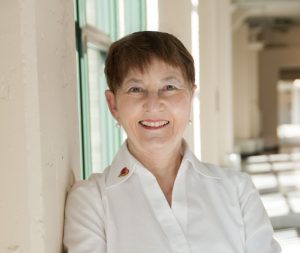The Power of Yet is one of the most powerful tools in my resilience program.
An incident a few years ago gave me a suitable name for a process I had been pursuing for years. A doctor told me that a recent blood test revealed that I had a factor in my blood that made me three times more likely to have a heart attack than the average person. Shocked, I asked her why, since I had pursued an extraordinarily healthy lifestyle. She replied, “Oh, it’s just old age.” I was horrified; I had never thought of myself as old, and besides, that seemed like a definitive answer; there was nothing to be done about it. I was doomed.
I did the thing any sensible person would do. I fired the doctor, and got a new one, a brilliant cardiologist greatly admired in the medical community. Optimistic and supportive, her position was, “Well, we don’t have a treatment for that yet.”
I was struck by her phrasing: she was saying that she believed human beings were capable of solving this puzzle. It also made me feel secure that she would be alert to such a discovery, and would pass that wisdom on to me.
I have thrived in that respect ever since then, and there has been no indication that I am going to die soon of cardiac disease, or even ever. Maybe I’ll go down in a plane crash or eat a bad mushroom, but not because of my heart. In fact, that same doctor now tells me she believes I will live to 100, and in a recent conversation, with increasing optimism on both our parts, 120.
My interest in optimism stems from a study I found in graduate school in which researcher Martin E.P Seligman found that a psychological condition he called “Learned Helplessness” led to greater susceptibility to many illnesses and to early death. In Learned Helplessness, you have the belief that there is nothing you can do to escape from a problem; your ability to see alternate solutions is severely limited, even when they are obvious to onlookers, and your motivation is zero because the energy that drives you to act has been drained by hopelessness.
I soon recognized areas of Learned Helplessness in my life, and worked hard to eliminate them before they damaged me further.
If helplessness is deadly, what is healthy?
Well, optimism is, but how do you get there when you seem to be deluged by bad news?
That’s the Power of Yet: when you realize that we live, as quantum physics now assures us, in a universe of infinite possibilities, and you just have not yet connected with the solution you want.
Try it out for yourself, starting with baby steps about things you’ve always wanted to do:
“Haven’t taken up playing the guitar… yet.”
“Haven’t brushed up on my high school Spanish… yet.”
As you feel your energy and your thinking shift in a positive direction, become a little more daring:
“Haven’t visited Machu Picchu… yet.”
“I have not learned to fly a glider… yet.”
So fire the people from your life who want to assure you that the last chapter has been written, and that there is no information coming in to change the present, much less the future. Embrace “yet.
Neuropsychology tells us that the dawn of the optimism that “yet” brings literally frees your brain to think more creatively, to see options that had not occurred to you before.
According to Seligman, and many other researchers since then, your life – the quality of your life and even your continued physical existence – depends on it.
To believe that what you want – information, a connection, a solution – is out there someplace is like seeing a glimmer of light on the horizon.
It’s the dawn of hope.
Despair is a destroyer.
Hope is a healer.
The quality of your life depends on your beliefs, not someone else’s view of reality.
***
Personal note: Thanks to all who responded with concern to my last article about my vision loss and resilience. I was touched by everyone’s expressions of support.
The article was meant to be a statement of power and an example of the resilience which I have developed over the years, and which I share with my clients.
I am, in fact, just fine and living a life of increasing insight and joy.
Thank you all for your responses and concern.
Lynette Crane is a speaker, coach, trainer, and author who specializes in resilience training and heart-brain connections. She holds a Master’s Degree in Psychology from the University of California and a life coach certification from Coach Training Alliance, and is a certified trainer and coach/mentor with HeartMath™ Institute.




For a person of quiet brilliance this is thundering brilliance! Crystal clear articulation.
When I was bullied in school as a young person—and my father would not take time away from work to teach me to defend myself—I picked up a heavy dose of learned helplessness. My path to empowerment turned out to be a relentless passion to go beyond the edge of what most people thought was possible for individuals, families, communities and society. This evolved inside of my personal mission, “the pursuit of unlimited human potential through unconditional love in community.”
As far as your sight goes, Lynette, I think that one of your superpowers is insight. It serves you, your communities and the world!